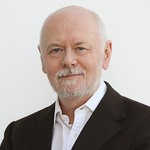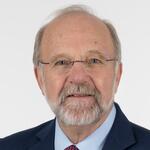Blog
UNU-WIDER @ 30
2015 marks the 30th anniversary of UNU-WIDER. The Institute opened its doors in 1985. It has been quite a ride ever since. We have had thousands of economists and other social scientists through those Helsinki doors since 1985. Not only some of the most famous figures in the business, but many younger early-career economists–who have often gone on to have a big impact on research and policy. Our engagement with the developing world has been a constant, and it has been a real pleasure to dialogue with such a variety of research and practice from across the globe. We have all learnt so much: and together.
A defining characteristic of UNU-WIDER is its openness to a diversity of opinion. We don't have a party line. While UNU-WIDER research does not shrink from making recommendations on poverty reduction, climate change, and peace (to name three of the very biggest global goals) we recognize that policy-making takes place in the context of politics, history, and ethics. So we try not to be over-prescriptive. Development is littered with the wreckage of over-enthusiasm for the latest fad – often well-meaning, yet undertaken without enough knowledge of the countries concerned. We believe that good development economists can be identified by ‘dust on their boots’ – from real country experience – not just via the standing of their university.
UNU-WIDER was born at a time when intense ideological battles raged within economics. Many of you will say this has not changed. But in the 1980s, the battles – over public action versus the market as development drivers – were especially ferocious. The stakes were high (and still are). Many developing countries were a lot poorer than they are today, they had little access to private capital, and those who held the purse strings of official development finance could try and impose their own views (and some still try today). Sometimes this advice was wise, but often it gave too little respect to the experience and wisdom of practitioners and researchers in the developing countries themselves. The then ‘orthodoxy’ neglected the structural features of developing countries that hold growth back, it neglected the poor in favour of growth alone, and it paid scant attention to the environment. It reminded us of the importance of the market, yet neglected the institutions that enable markets to deliver both efficient and fair exchange.
Much has changed; a great deal has not. Poverty, climate, and (increasingly) inequality and inclusion are at the centre of the development agenda in a way they were not, 30 years ago. We might ask whether this constitutes more rhetoric than action, though it is heartening for those of us who began our careers in the 1970s (and earlier!). Certainly the growth in the amount of data (even if we would not yet call it a revolution, as some now do) together with the related IT revolution gives researchers an ability to create knowledge in ways that were unimaginable in 1985. What has not changed enough is the inclusion of developing country researchers and practitioners in the global development debate. And there are still too few female development economists, especially from the poorer world. At UNU-WIDER we make it our business to open many opportunities for developing country researchers – and over the coming years we will do even more.
Since 1985 UNU-WIDER has built an impressive international reputation for high-quality development research. Poverty and inequality have been constant themes, starting with UNU-WIDER’s pioneering work on famine and food security, led by Amartya Sen (who wrote the very first WIDER working paper). UNU-WIDER has over the years engaged with the very biggest challenges of our times: environment and climate change; conflict; macro-economic stabilization and adjustment; economic transition; and now inclusive growth and gender equality (to name just a few topics). The Institute has a vast archive of research, and you can find it on our website, together with videos of many people from our network and recent events. Many of you have engaged with our superb support team, without which the Institute’s researchers and its network cannot deliver the constant stream of output.
The years have flown by since UNU-WIDER was founded. The young eager researchers of the mid-1980s are now grizzled veterans. They are kept young-at-heart by the constant flow of new talent into our profession. Cynicism about development is too easy. Rather, we should try, fail, do better, try again – and then succeed. Poverty and hunger no longer appear insuperable. East Asia has shown spectacular development success, an inspiration to poor economies in what can be done. Africa pulses with vigour and growth, constantly challenging the media stereotypes. Latin America moved on from its lost-development decade of the 1980s to innovate in social protection. Yet, much of this progress is fragile. It could all too easily be set back by climate change, conflict, and disease. As the United Nations celebrates its 70 years, UNU-WIDER celebrates 30 years in development research at its home, in Helsinki, Finland. We thank you all for your continuing support.
 Join the network
Join the network

